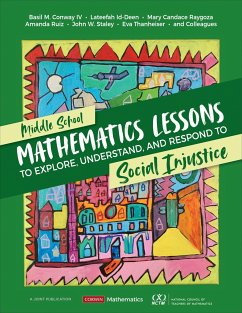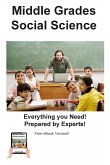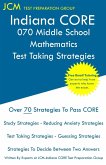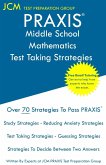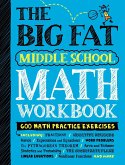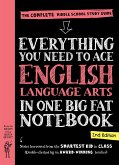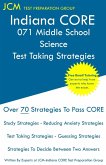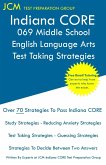"If you teach middle school math and have wanted to promote social justice, but haven t been sure how to get started, you need to check out this book. It incorporates lessons you can use immediately as well as how to foster the kind of classroom community where students will thrive. It s the kind of book you ll want to have alongside you to support you throughout your journey."
Robert Kaplinsky
Author and Consultant
Long Beach, CA
Empower young adolescents to be the change join the teaching mathematics for social justice movement!
Students of all ages and intersecting identities through media and their lived experiences bear witness to and experience social injustices and movements around the world for greater justice. However, when people think of social justice, mathematics rarely comes to mind. With a user-friendly design, this book brings middle school mathematics content to life by connecting it to issues students see or experience.
Developed for use by Grades 6-8 educators, the contributed model lessons in this book walk teachers through the process of applying critical frameworks to instruction, using standards-based mathematics to explore, understand, and respond to social injustices. Learn to plan daily instruction that engages young adolescents in mathematics explorations through age-appropriate, culturally relevant topics such as health and economic inequality, human and civil rights, environmental justice, and accessibility. Features include:
Content cross-referenced by mathematical concept and social issues Connection to Learning for Justice s social justice standards Downloadable teacher materials and lesson resources Guidance for lessons driven by young adolescents unique passions and challenges Connections between research and practice
Written for teachers committed to developing equitable and empowering practices through the lens of mathematics content and practice standards as well as social justice standards, this book will help connect content to young adolescents daily lives, strengthen their mathematical understanding, and expose them to issues that will support them in becoming active agents of change and responsible leaders.
Hinweis: Dieser Artikel kann nur an eine deutsche Lieferadresse ausgeliefert werden.
Robert Kaplinsky
Author and Consultant
Long Beach, CA
Empower young adolescents to be the change join the teaching mathematics for social justice movement!
Students of all ages and intersecting identities through media and their lived experiences bear witness to and experience social injustices and movements around the world for greater justice. However, when people think of social justice, mathematics rarely comes to mind. With a user-friendly design, this book brings middle school mathematics content to life by connecting it to issues students see or experience.
Developed for use by Grades 6-8 educators, the contributed model lessons in this book walk teachers through the process of applying critical frameworks to instruction, using standards-based mathematics to explore, understand, and respond to social injustices. Learn to plan daily instruction that engages young adolescents in mathematics explorations through age-appropriate, culturally relevant topics such as health and economic inequality, human and civil rights, environmental justice, and accessibility. Features include:
Content cross-referenced by mathematical concept and social issues Connection to Learning for Justice s social justice standards Downloadable teacher materials and lesson resources Guidance for lessons driven by young adolescents unique passions and challenges Connections between research and practice
Written for teachers committed to developing equitable and empowering practices through the lens of mathematics content and practice standards as well as social justice standards, this book will help connect content to young adolescents daily lives, strengthen their mathematical understanding, and expose them to issues that will support them in becoming active agents of change and responsible leaders.
Hinweis: Dieser Artikel kann nur an eine deutsche Lieferadresse ausgeliefert werden.

